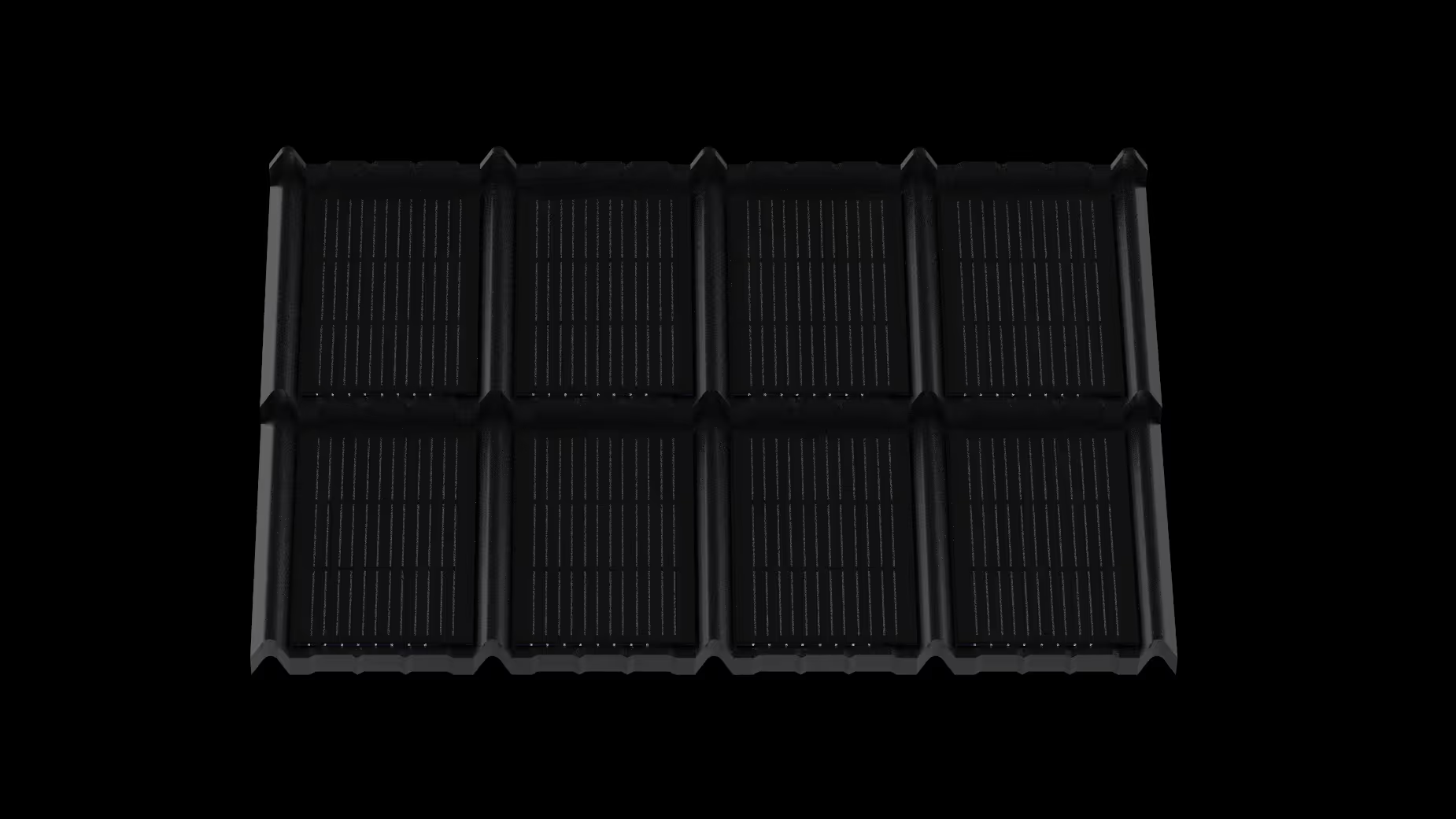AutoSeal Technology - High quality bonding agent for panel and sheet metal

In traditional photovoltaic systems, this problem was solved by mounting panels on special structures above the roof. However, in the case of roofs integrated with photovoltaics, where the panel must be an integral part of the roofing, such a solution is not an option. The glass must be firmly connected to the sheet, forming a tight and durable surface.
Previous attempts to use standard industrial adhesives and sealants have been unsuccessful. After several years of exposure to changing weather conditions, these materials lost their properties - hardened, crumbled or lost adhesion. As a result, the connection between the glass and the sheet metal was sealed, which led to leaks and damage to the entire system.
This situation required a completely new approach. Instead of adapting existing solutions from the construction industry, Electrotile's engineering team decided to look for inspiration in other industries where there is also the problem of permanently joining glass to metal. Attention was drawn to the automotive industry, specifically the technology of assembling car windows. In this case, the connection must withstand not only changeable weather conditions, but also vibrations and mechanical stresses that occur when driving.
Modern car windows are glued to the body with the help of advanced polymers that retain flexibility and adhesion for many years of operation. Moreover, the gluing process is fully automated and repeatable, which guarantees consistently high quality of each joint. It was this technology that became the starting point for the development of the AutoSeal Technology system.
Inspiration from the automotive industry
The automotive industry has faced similar challenges as solar construction for decades. Car windows must remain airtight and safe in extremely different conditions - from frosty Scandinavia to hot deserts. In addition, they must withstand constant vibrations, stresses when turning the body and the impact of stones from the road. The technology of gluing car windows has been honed to perfection and has passed countless strength tests.
Electrotile engineers have established partnerships with leading suppliers for the automotive industry. For more than a year, they conducted research on the adaptation of automotive glass gluing technology to roofing conditions. The key was to develop a special binder formula that retains flexibility over a much wider range of temperatures than cars require.
Standard automotive adhesives are tested in the range of -40°C to +60°C. On the roof, however, the surface temperature can exceed 80°C on sunny days. Therefore, the research team had to modify the chemical composition of the binder so that it retained its properties even in such extreme conditions. After hundreds of tests in the laboratory, it was possible to develop a unique formula that combines flexibility, adhesion and durability.
Another challenge was the development of a robotic binder application process. In the automotive industry, the adhesive is applied by robots with a precision of up to 0.1mm. The same accuracy was necessary in the manufacture of solar roofs. For this purpose, an advanced production line using the latest generation of industrial robots was installed at the Electrotile factory. Each stage of the gluing process is monitored by vision systems and sensors, and the parameters are constantly recorded and analyzed.
The developed binder and the process of its application have undergone rigorous testing in independent laboratories. The samples have undergone more than 1000 freeze-thaw cycles, simulations of extreme rainfall and hail, and aging tests corresponding to 30 years of operation. The results significantly exceeded the requirements of building standards for roofing.
Most importantly, AutoSeal technology significantly exceeds the strength parameters of ordinary industrial binders. In standard tests for the detachment of glass from the substrate, it achieves values 50% higher than traditional adhesives. In addition, it retains flexibility over the full range of operating temperatures, which eliminates the risk of cracking and crumbling of the binder.
Tested in extreme conditions
The most important stage in the development of AutoSeal technology was comprehensive endurance tests. In special climatic chambers, the samples were subjected to extreme conditions that simulated many years of operation on the roof. The temperature varied cyclically from -40°C to +80°C, and intense UV exposure simulated the influence of the sun. After hundreds of test cycles, the binder retained full elasticity and adhesion.
The strength tests went far beyond the standard requirements for building materials. Samples were bombarded with artificial hail up to 40mm in diameter, subjected to strong vibrations simulating wind, and also tested for tensile and shear. In any case, the connection of the glass with the sheet remained intact. Moreover, even under extreme load, the binder retained elasticity, absorbing stress instead of breaking.
The key parameter for any roof is tightness. Samples with AutoSeal technology underwent rigorous testing in a rain chamber, where they were treated with water under high pressure. Even after hundreds of freeze-thaw cycles, which are the most demanding test for any seal, no leaks have been observed.
The results of the research were confirmed by independent research institutes. AutoSeal technology has received all the necessary certificates and approvals, significantly exceeding the required parameters. Particularly impressive were the results of aging tests - the samples retained full functionality even after tests corresponding to 30 years of operation in real conditions.
Reliability guarantee
With a combination of advanced technology, precision manufacturing and rigorous testing, AutoSeal Technology ensures the highest level of safety and durability. The system is covered by a 25-year 80% yield guarantee and a 10-year product warranty, which includes the preservation of tightness and mechanical parameters.
Owners of homes with Electrotile solar roof can sleep peacefully knowing that their investment is protected by technology proven in the most demanding conditions. AutoSeal Technology is an example of how innovations from other industries, properly adapted and improved, can solve the challenges of modern construction.
Subscribe to the newsletter
Get a handful of information about solar technologies from Electrotile




























